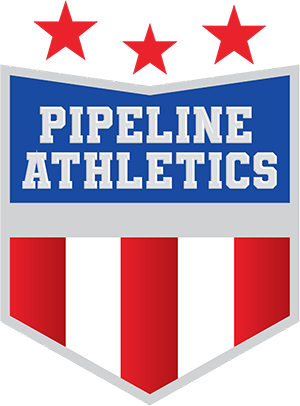It is difficult to provide an average transaction amount. The value of NIL deals can range from modest amounts, such as a few hundred dollars for smaller endorsements or social media promotions, to significant sums for high-profile athletes, potentially reaching thousands or even millions of dollars for endorsement deals with major brands.
It’s important to note that the landscape of NIL transactions is still evolving, and the market will likely continue to develop as more athletes take advantage of these opportunities and establish their market value. The actual average transaction amount may become clearer as more data becomes available over time.
Financial Literacy Guide for High School Student Athletes
As a high school student athlete, it’s important to develop a solid understanding of financial literacy. This guide aims to provide you with essential information and tips to help you manage your finances effectively during your time with Pipeline Athletics.
1. Budgeting
Creating a budget is the foundation of financial success. Start by identifying your sources of income, such as part-time jobs, allowances, or scholarships. Then, make a list of your expenses, including training costs, equipment, travel expenses, and personal expenses. Allocate your income accordingly, ensuring that your expenses don’t exceed your earnings. Tracking your spending and adjusting your budget as needed will help you stay on top of your finances.
2. Saving and Investing
Developing a habit of saving and investing early on will greatly benefit you in the long run. Consider opening a savings account specifically for your sports-related earnings. Set aside a portion of your income regularly, even if it’s a small amount. Over time, your savings will grow. Additionally, educate yourself about investment options, such as stocks, bonds, or mutual funds. However, before investing, seek guidance from a trusted financial advisor to ensure you make informed decisions.
3. Scholarships and Financial Aid
Take advantage of scholarship opportunities and financial aid programs available to student athletes. Research and apply for scholarships that align with your athletic achievements, academic performance, or community involvement. Consult your school’s guidance counselor or coach for assistance in finding suitable options. Additionally, explore the financial aid resources provided by Pipeline Athletics or other sports organizations you may be associated with.
4. Insurance and Health Expenses
As a student athlete, it’s crucial to prioritize your health and well-being. Familiarize yourself with any insurance coverage provided by your school. Understand the terms and conditions of the coverage, including deductibles, copayments, and limitations. Consider obtaining additional insurance if needed, such as personal injury coverage or sports-specific policies. It’s essential to have a plan in place to manage potential health expenses effectively.
5. Professional Advice
Seeking professional financial advice can help you make informed decisions and develop a solid financial strategy. Consider consulting with a certified financial planner or accountant who specializes in working with young athletes. They can provide guidance on budgeting, investing, tax planning, and long-term financial goals. Having a professional in your corner will ensure you’re on the right track to financial success.
6. Avoiding Financial Pitfalls
Be cautious of common financial pitfalls that can harm your financial well-being. Avoid excessive spending on non-essential items, unnecessary loans, or credit card debt. Be mindful of your financial obligations and make informed decisions based on your budget and long-term goals. Stay away from risky investments or get-rich-quick schemes that promise unrealistic returns. Your long-term financial stability should be your priority.
7. Education and Continued Learning
Financial literacy is a lifelong journey. Take advantage of educational resources available to improve your financial knowledge. Read books, articles, or online resources about personal finance and investing. Attend workshops or seminars on financial literacy when possible. The more you educate yourself, the better equipped you’ll be to make wise financial decisions throughout your athletic career and beyond.
Remember, your time as a student athlete is an incredible opportunity. By developing strong financial literacy skills, you’ll be better prepared to manage your finances, make smart financial decisions, and set yourself up for success!



